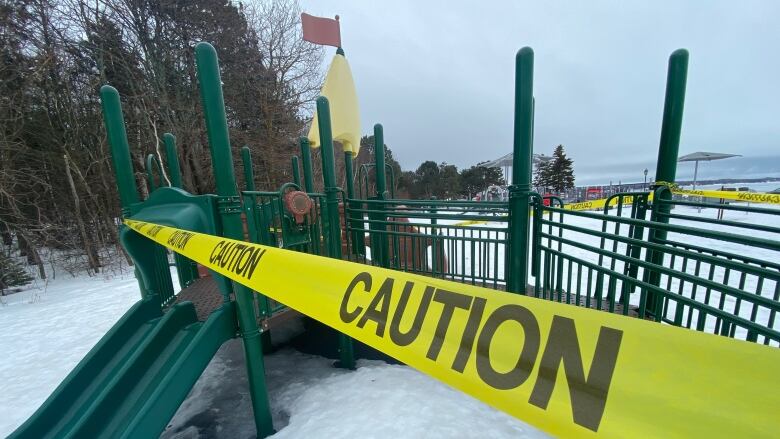Why the COVID-19 pandemic means being careful about public playgrounds
Nobody wants to be ground zero for this

Social distancing and the potential for contaminated surfaces mean you should be careful about how your child is using playground equipment, says an infectious disease specialist.
Around the world, countries have put measures in place to try to slow the spread of the pandemic. On P.E.I., the Chief Public Health Office has asked non-essential services to close, and schools and daycares are already shut down.
A little bit of extra caution for the next couple of weeks is very well worth it. Dr. Lisa Barrett
The City of Charlottetown closed its playgrounds Friday morning, and the Municipality of Kings in Nova Scotia is cautioning against their use.
Dr. Lisa Barrett, a clinical scientist and infectious disease physician at Dalhousie University in Halifax, said playgrounds aren't immune to spreading the virus.
"It seems to be that, in general, this virus can live outside humans and then can infect other humans maybe for up to three to 72 hours," said Barrett.
"The take-home message is that virus could be on some public surfaces where people touch them a lot, especially if they haven't washed their hands."
Passing by touch
Researchers have determined that coronavirus is "not a jumping virus," said Barrett.
It can't jump from one surface to another, for example, from a swing to your child's mouth. To get COVID-19 from that swing, your child would have to touch it with their hands and then touch their face. It could also be carried from swing to face if the child is wearing mittens and touches the swing and then their face.

"There's the occasional, you know, small kid or adult nose picker. There's the people who, you know, are nail biters," said Barrett.
"We touch our faces. It's a human behaviour that's very, very, very common."
But even if your child doesn't touch their face, Barrett stressed playgrounds still aren't ideal.
"This has nothing to do with the fact that the merry-go-round might have virus on it. It's the fact that there's lots of other people there," she said, which could make social distancing difficult.
Researchers still don't know how cold temperatures might affect the survival of the virus on surfaces, she added.
'Splitting hairs'
Your own playground equipment, with controlled access in your backyard is fine, said Barrett.
The problem arises when that playground is in a public location.

"It's really hard to keep little kids six feet from each other," she said.
"I'd say it's pretty darn impossible."
Social distancing is important behaviour federal and health officials have recommended to combat the coronavirus. It involves staying around two metres away from others.
"If we aren't strict around all of these precautions right now, we're really going to miss the boat," said Barrett.
"These cases will get very frequent."
While some critics might call this overkill, for Barrett it's about preventing something before it happens.
"Am I splitting hairs about the playground versus not? Maybe. Is it the highest risk situation to take your kids to the playground? Maybe not," she said.
"But at the end of the day, nobody wants to be ground zero for this and so a little bit of extra caution for the next couple of weeks is very well worth it."
More from CBC P.E.I.
With files from Kevin Yarr












_(720p).jpg)


 OFFICIAL HD MUSIC VIDEO.jpg)
.jpg)



























































































